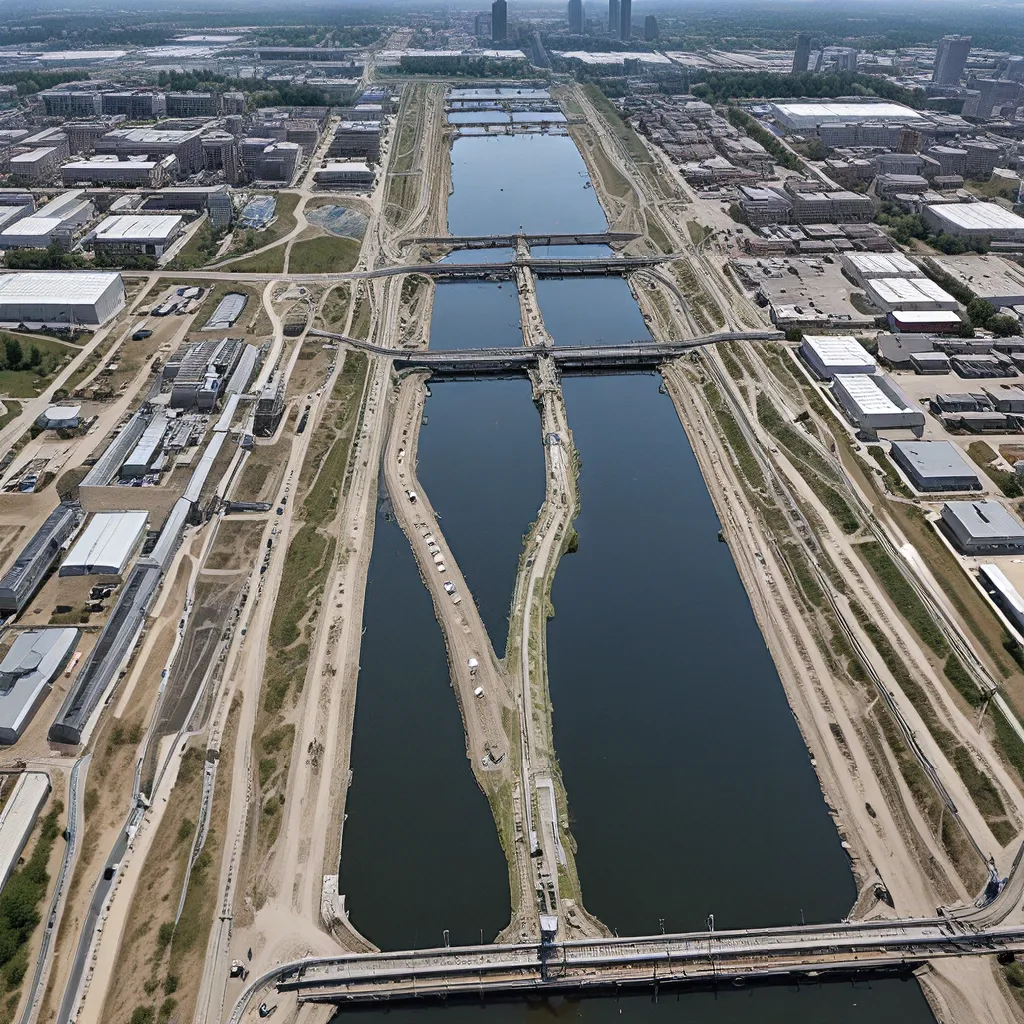
As the world becomes increasingly urbanized, cities are facing unprecedented challenges in managing their resources, including the critical issue of wastewater treatment. However, the rise of smart city technologies presents a promising solution, allowing us to revolutionize the way we approach wastewater management.
The Evolving Landscape of Wastewater Management
Wastewater management has undergone a remarkable transformation over the centuries. From the primitive methods of open pits and drainage systems used by ancient civilizations to the sophisticated treatment processes we employ today, the journey has been nothing short of remarkable.
Primitive civilizations relied on basic methods to dispose of wastewater, often resulting in unsanitary conditions and the spread of waterborne diseases. As societies advanced, more sophisticated systems were developed to treat and manage wastewater, involving the use of physical, chemical, and biological processes to remove pollutants and ensure the safe release of treated water back into the environment.
However, traditional wastewater management systems have often been plagued by inefficiencies, high operational costs, and the inability to effectively monitor and optimize system performance. This is where the smart city concept comes into play, offering a transformative solution.
The Smart City Approach to Wastewater Management
A smart city is a concept that leverages information and communication technologies (ICT) to enhance the quality of life for its residents. By integrating various systems and services, smart cities can optimize resource utilization, improve efficiency, and create a sustainable environment.
Wastewater management is a critical component of this smart city ecosystem, as it encompasses the collection, treatment, and disposal of wastewater. Sensor networks play a crucial role in smart wastewater management, providing real-time data on parameters such as water quality, flow rates, and levels. This data enables prompt detection of issues and efficient decision-making.
Data analytics techniques, such as machine learning and artificial intelligence, allow cities to extract valuable insights from the vast amount of data collected by sensor networks. By analyzing historical and real-time data, cities can optimize their wastewater management systems, minimize maintenance costs, and predict potential failures.
Automation and control systems further enhance operational efficiency by automating processes and optimizing resource utilization. These systems enable remote monitoring and control, resulting in more effective management and reduced operational costs.
Benefits of Smart Wastewater Management
The implementation of smart wastewater management systems in smart cities offers a multitude of benefits, from improved resource utilization to enhanced environmental protection.
Resource Utilization: Smart wastewater management systems enable better utilization of resources such as water and energy. By implementing advanced technologies and processes, cities can reduce water consumption, increase energy efficiency, and ensure the sustainable use of resources.
Environmental Protection: Efficient wastewater treatment and management contribute to improved public health by preventing the spread of diseases and minimizing waterborne illnesses. Additionally, the proper treatment of wastewater protects the environment by reducing pollution and preserving aquatic ecosystems.
Cost Savings: Smart wastewater management systems can result in significant cost savings for cities. By optimizing processes, reducing water loss, and minimizing maintenance requirements, cities can achieve long-term economic benefits and allocate resources to other important areas of development.
Operational Efficiency: The integration of smart technologies in wastewater management allows for real-time monitoring, data-driven decision-making, and automated processes. This leads to improved operational efficiency, reduced labor costs, and enhanced system performance.
Overcoming Challenges in Smart Wastewater Management
While the potential benefits of smart wastewater management are substantial, there are also challenges that cities must address to ensure successful implementation.
Privacy and Data Security: The integration of smart technologies in wastewater management raises concerns about privacy and data security. Cities must implement robust data protection measures and ensure that personal information remains confidential.
Stakeholder Collaboration: Successful implementation of smart wastewater management requires collaboration among various stakeholders, including government agencies, utility companies, technology providers, and the public. Effective coordination ensures smooth operations and maximizes the potential benefits of these systems.
Regulatory Frameworks: To promote the widespread adoption of smart wastewater management, regulatory frameworks and standards must be developed and implemented. These frameworks ensure that systems meet quality and performance requirements while maintaining consistency across different cities.
Financing and Resource Constraints: Implementing smart wastewater systems can be financially challenging for cities, especially those with limited resources. Evaluating the long-term costs and benefits, as well as exploring sustainable financing options, is crucial to ensure the viability and affordability of these systems.
Resistance to Change: Resistance to change and lack of awareness among stakeholders can hinder the adoption of smart wastewater management systems. Effective communication, education, and stakeholder engagement are essential to overcome these challenges and foster acceptance and support.
The Future of Smart Wastewater Management
The integration of wastewater management with other smart city systems, such as energy management and transportation, can lead to synergies and optimize resource utilization. By creating interconnected systems, cities can achieve holistic and sustainable urban development.
Advancements in technology and innovation will continue to shape the future of smart wastewater management. Emerging technologies, such as nanotechnology and advanced sensor systems, hold tremendous potential for improving efficiency, reducing costs, and enhancing environmental protection.
As cities recognize the benefits and value of smart wastewater management systems in addressing pressing environmental and resource challenges, the potential for expansion is immense. By embracing these cutting-edge solutions, cities can pave the way for a more sustainable and livable future.
Empowering Sustainable Urban Development with Alpha Wastewater
At Alpha Wastewater, we believe that smart wastewater management is the key to unlocking the full potential of smart city development. Our team of experts is dedicated to providing innovative solutions that optimize resource utilization, enhance operational efficiency, and protect the environment.
By integrating cutting-edge technologies, data analytics, and automation, we empower cities to transform their wastewater management systems and unlock a future of sustainable urban development. Let’s work together to redefine the way we manage our most precious resource – water.